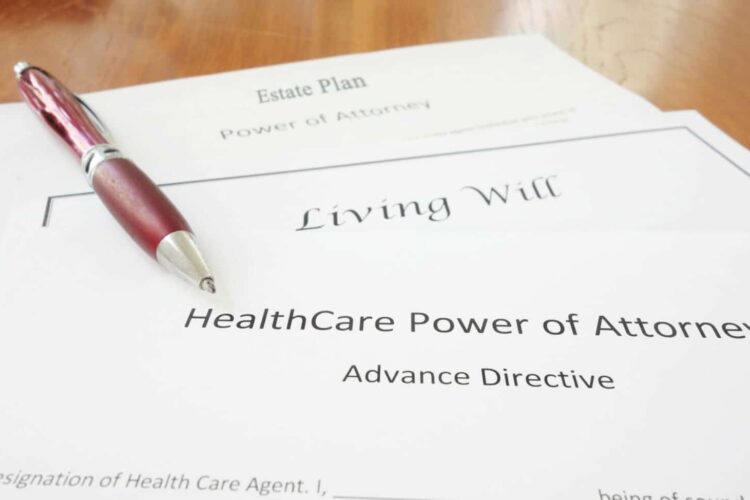COVID-19 and Your Health Care Directive

An advance health care directive is a legal document that communicates your individual healthcare treatment inclinations (the “living will” portion) but we also recommend that you designate a healthcare “proxy.” Such a proxy, which is often referred to as a healthcare “agent”, is a person who you can appoint to make decisions on your behalf in the event you come to be unable to make such decisions on your own. The directive will allow you to provide direction to your agent and/or doctors if you become unconscious or are otherwise unable to communicate your wishes.
The number of confirmed instances of U.S. citizens contracting COVID-19 as well as the number of individuals who have passed away from coronavirus related symptoms are on the rise. The novel coronavirus is capable of causing dangerous respiratory conditions, prolonged hospital visits, and this is leading to a definite strain on our healthcare systems. Unfortunately, because COVID-19 is so transmissible, loved ones of those who fall ill are often unable to be with the patient in their hospital room. As a consequence, this virus truly magnifies the importance of advanced healthcare planning, especially when it comes to creating an advance directive / living will.
The best healthcare directives will focus on addressing all of your healthcare requirements during the coronavirus outbreak, though we’d like you to consider several key issues as you assess your options in light of this coronavirus pandemic:
Planning Out Your Health Care Directive
Communication : If you are admitted to a hospital room, and are physically able, you should always instantly state what your precise wishes are − as far as which medical treatments you would be OK with for treating COVID-19, which could include new experimental treatments, intubation & ventilation, if required.
Additionally, while most directives give a healthcare agent clear authority to communicate with your healthcare providers, the authority for digital communications are not always considered. If this is true for you, you can consider modifying your directives to allow your healthcare team to take direction from your healthcare agent by phone, Facetime, Zoom, Facebook Messenger, Google Hangouts, and any other digital methods that your agent could use if they are not able to get to you at the hospital. Giving yourself options is always a good thing.
Health Care Directives / Intubation and Ventilation
In most cases, a doctor won’t withhold a ventilator from you if you contract COVID-19 unless they believe you don’t have any possibility of recovering from the illness. This is because, in most cases, your healthcare directive becomes legally effective once a doctor determines that you have a terminal condition—which is one that cannot be cured or reversed by any medical treatments.
Even so, every hour, medical professionals around the world are currently making exceedingly difficult decisions for patients in severe respiratory distress. Even when a doctor understands that a patient has created an advance directive, they can struggle to assess if a patient is going to be able to recover, or whether a patient would prefer to be put through wide-ranging and aggressive procedures to produce even the slightest chance at regaining the quality of life they had before.
Consequently, it may be in your best interests to meet with our estate planning attorneys to edit your own directive with COVID-19 specific language in mind so that you are able to provide guidance for your intentions regarding any medical treatments available which may be used to treat COVID-19, and remember these can include experimental treatments, intubation, and ventilation, when these are found to be necessary.
While the risk of ending up on a ventilator from coronavirus is fairly low for most people, an article recently published in the Seattle Times emphasizes the significance of contemplating what kind of life sustaining treatments you want your doctors to use in the event that you end up facing dire straits.
A meticulously crafted Health Care Directive can give your health care professionals and decision-makers critical guidance about the situations in which you would choose to receive any highly invasive medical treatments if you are unable to voice these opinions for yourself.
When making such important decisions, it would be beneficial to consider your personal values, your current health conditions, any risks to your health, as well as the realities of receiving life-sustaining treatments. Always consult with your doctor about all of the associated risks and benefits of any treatment you’re considering.
If you have any questions regarding changes to your Health Care Directive, or putting one in place, please email us at info@moultonlaw.com or call us at 509-328-2150 .
